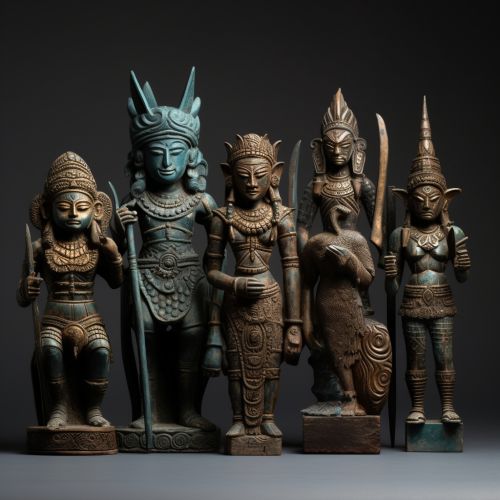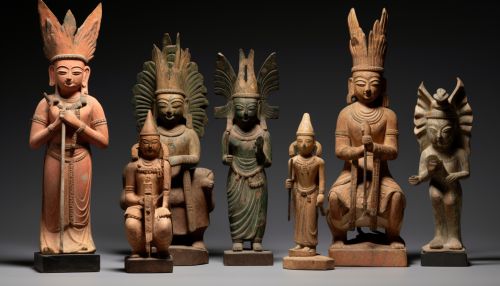Polytheism
Introduction
Polytheism is a religious belief structure that recognizes and worships multiple deities. The term derives from the Greek words "poly," meaning many, and "theos," meaning god. Polytheistic religions are prevalent throughout history and across various cultures worldwide, with each deity typically having its own domain or set of responsibilities within the cosmos. This article delves into the complexities of polytheism, its historical context, and its various forms across different cultures.


Historical Overview
Polytheism is one of the earliest forms of religious belief, predating both monotheism and atheism. It is prevalent in many ancient civilizations, including the Egyptians, Greeks, Romans, and Norse cultures. These societies worshipped a pantheon of gods and goddesses, each with their own distinct personalities, domains, and stories.
Characteristics of Polytheistic Religions
Polytheistic religions typically have a pantheon of gods and goddesses, each with their own distinct roles. These deities may govern natural phenomena, human emotions, or societal constructs. For example, in Greek mythology, Zeus is the king of the gods and the god of the sky and thunder, while Aphrodite is the goddess of love and beauty.
Deities
Deities in polytheistic religions are often anthropomorphic, meaning they are depicted with human characteristics. They may have human emotions, desires, and flaws, making them relatable to their worshippers. However, these deities also possess supernatural powers and immortality, distinguishing them from humans.
Rituals and Worship
Rituals in polytheistic religions often involve offerings or sacrifices to the deities. These can range from food and drink to animals or even humans in some cultures. Rituals may also involve prayer, chanting, or other forms of communication with the deities.
Mythology
Mythology plays a significant role in polytheistic religions. Myths often explain the origins of the gods and the world, provide moral lessons, and justify social or political systems. They are typically passed down through generations via oral tradition or written texts.
Types of Polytheism
There are several types of polytheism, including soft polytheism, hard polytheism, and henotheism.
Soft Polytheism
Soft polytheism, also known as inclusive or syncretic polytheism, views the gods of different religions as aspects of a single, transcendent god. This form of polytheism is common in Hindu and Neopagan traditions.
Hard Polytheism
Hard polytheism, also known as exclusive polytheism, views the gods as distinct, separate beings. This form of polytheism is common in ancient Greek and Roman religions.
Henotheism
Henotheism is a form of polytheism that acknowledges the existence of many gods but focuses worship on one particular deity. This form of polytheism is found in some forms of Hinduism.
Polytheism in Various Cultures
Polytheism is prevalent in many cultures worldwide, each with its unique pantheon of gods and goddesses.
Ancient Greek Polytheism
Ancient Greek religion was polytheistic, with a pantheon of gods and goddesses headed by Zeus. These deities were worshipped through rituals, sacrifices, and festivals.
Hindu Polytheism
Hinduism is a complex religion with elements of monotheism, polytheism, and henotheism. It has a vast pantheon of deities, each with their own distinct characteristics and domains.
Norse Polytheism
Norse polytheism, also known as Norse paganism, was the pre-Christian religious beliefs of the Norse people. It included a pantheon of gods led by Odin and included gods like Thor and Loki.
Contemporary Polytheism
In contemporary times, polytheism is still practiced in various forms. Some people follow ancient polytheistic religions, while others have created new polytheistic religions, often based on ancient beliefs. Examples include Neopaganism, Wicca, and Hellenism.
